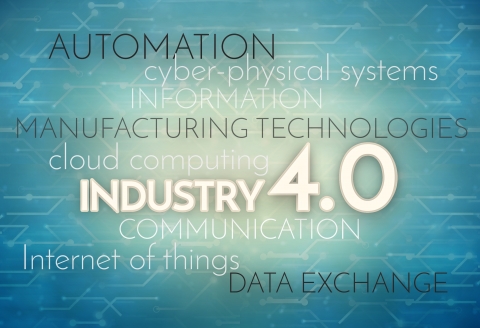Industry 4.0 is Here - Are You Ready?
We’re on the brink of the Fourth Industrial Revolution, simply referred to as Industry 4.0. This revolution promises to be entirely different than the three prior Industrial Revolutions that preceded it — steam and water power, electricity and assembly lines, and computerization.
What exactly is Industry 4.0?
The 4th Industrial Revolution refers to the rapid advances to the way we live, work and relate to each other due to the addition of cyber-physical systems, the Internet of Things (IoT) and the Internet of Systems. As more smart technologies are introduced in our factories and businesses, linked equipment will work together to visualize production requirements and make decisions. These changes are predicted to impact all disciplines, industries, and economies across the globe.
What are the potential benefits of the 4th Industrial Revolution?
One of the most compelling promises of the Fourth Industrial Revolution is to ability is to improve the quality of life across the globe vastly. For the population in First World countries, workplaces and organizations are becoming "smarter" and more efficient as machines, and humans work together, and we use connected devices to enhance our supply chains and warehouses. The technologies of the Fourth Industrial Revolution could even allow us to undo some of the damage wrought by previous industrial revolutions.
What are the potential hazards of the 4th Industrial Revolution?
The Fourth Industrial Revolution might create a job market that’s divided into low-skill/low-pay and high-skill/high-pay segments. Typically, first-adopters of technology are the ones with the financial means to secure it, and that technology can catapult their continued success further increasing the economic gaps. There is the potential that many jobs will no longer be needed. Moreover, the changes may advance so swiftly, that even those who are ahead of the curve regarding their knowledge and preparation, might not be able to keep up with the effects of the changes.
How to prepare for the Fourth Industrial Revolution?
Companies need to be smart, connected organizations and must invest in their technical infrastructure and data analyzing capabilities or risk falling behind the competition.
It is imperative to develop leaders with the skills to manage organizations through these extraordinary changes. We need to embrace change and realize our jobs might be drastically different soon. Our education and training programs need to better prepare the workforce for the flexibility required and critical thinking skills essential in tomorrow's workplace.




